THE FOOD is absolutely wonderful. It ought to be enough to make the evening magnificent, and for a while it is. Eating is such a great pleasure that the four of them speak very little, and when they do they talk only about the food. Were it not for the persistent whining of the boy at the next table, they might be in paradise. When they have finished they lean back, contented, regarding one another with the generosity of spirit a full stomach brings. This lovely moment doesn’t last, though, for Harold has complaining on his mind. Eating always reminds him of his childhood, and his childhood shames him because as a boy he resented his parents for working so hard and having so little time for him. As he grew older and began to see what all that work had cost them, and to admit that they had really thought they were doing it for him, he became ashamed of his childhood self for misunderstanding them. He has become a tireless champion of his parents, whom he now considers self-sacrificing, quietly suffering, wronged. Whenever he feels especially content, after a meal, and particularly at the end of a fine evening when he has not only eaten well but supposes he has been clever, then, as Lucretius put it, “in the midst of the fountain of wit there arises something bitter, which stings in the very flowers.” In Harold’s case it’s the memory of the injustice he did his saintly parents, and that bitter memory must be sweetened with praise of them, at the expense of anyone in his vicinity.
“You know,” he says with a sigh, “it’s a shame you can’t deal with people on the basis of trust.”
Since Matthew and Belinda do not recognize this as the preamble to a story about Harold’s self-sacrificing parents, the remark seems to them to have come from nowhere. Gwen, poor Gwen, recognizes it very well — not the specific words, perhaps, but the tone. She too sighs. Her sigh might be taken for endorsement.
“I used to think you could,” Harold goes on. “That you could deal with people on the basis of trust. I was very trusting.”
Belinda has figured it out now, not in the specifics, but she’s recognized the tone. She knows he’s going to expound some personal philosophy. Something cynical and annoying. She’s had about all she can take. She’s wearing a mocking look, though she isn’t aware of it. Harold’s a jerk, she has decided, and some part of her no longer cares whether he or anyone else knows how she feels.
“It used to be that someone told me something,” says Harold, “and I believed it. Someone gave me his word, and I took it. I got this from my father. My father loved everybody, trusted everybody. He was a truly kind and generous man. He ran a model shop — sold model trains, kits, magazines about model railroading, things like that.”
“Sounds like a dream world,” Matthew says, hoping to change the tone. Harold, thinking of the terrible injustice to come in the story, almost glares at him. “I mean,” says Matthew, “it must have been fun, hanging around the store when you were a kid. I know I would have loved it.”
Harold raises a hand. “That’s beside the point,” he says. “I want to illustrate something about human nature. So, my father had a shop, and he was a friend to all the children in town. The shop always had kids in it — ”
“And they stole from him,” says Belinda. Her voice, her look, her attitude, say that this is an old story.
“Yes,” says Harold. “That’s right. They did. They would slip tubes of glue in their pockets. Magazines under their shirts. Somehow they would get whole model kits out of the store. You’re not surprised, are you? It doesn’t seem to matter much, does it? Boys will be boys, right? The petty thefts of children aren’t particularly significant. Who knows, maybe you’re right. But that’s not my story. Permit me to tell my story.”
Belinda spreads her hands open, palms down. “Tell your story,” she says, too polite to permit herself to add, “You pompous asshole.”
“My father and mother did all the work in the shop themselves, except for one part-time assistant. A widow.”
Matthew looks down at his plate. He busies himself poking a bit of food around. He’s reminded of his own mother, widowed by the Second World War.
“A charity case, actually. She had one child — ”
A small, fat boy, thinks Matthew. An object of ridicule. A boy with no father to stand behind him, lend him strength against the taunts of bigger, powerful boys, boys with fathers.
“She had almost nothing, and a child to support. So my father gave her a job. He made her his assistant. It worked out quite well. She was very thorough, a hard worker. Because she was so good, my father got the idea of opening a second shop a couple of towns away. The widow could run the first shop while my mother and father got the new one going, and if it was successful they’d hire another manager for the other store, and they wouldn’t be mere shopkeepers any longer, they’d be running a chain. A couple of magnates, for God’s sake. Well, that’s just what they did. The widow took over the shop. Her boy used to come in after school and sit at a table in the back, doing his homework.”
By himself, thinks Matthew.
[to be continued]
Have you missed an episode or two or several?
You can begin reading at the beginning or you can catch up by visiting the archive or consulting the index to the Topical Guide.
You can listen to the episodes on the Personal History podcast. Begin at the beginning or scroll through the episodes to find what you’ve missed.
You can listen to “My Mother Takes a Tumble” and “Do Clams Bite?” complete and uninterrupted as audiobooks through YouTube.
You can ensure that you never miss a future issue by getting a free subscription. (You can help support the work by choosing a paid subscription instead.)
At Apple Books you can download free eBooks of Little Follies and Herb ’n’ Lorna.
You’ll find overviews of the entire work in An Introduction to The Personal History, Adventures, Experiences & Observations of Peter Leroy (a pdf document) and at Encyclopedia.com.




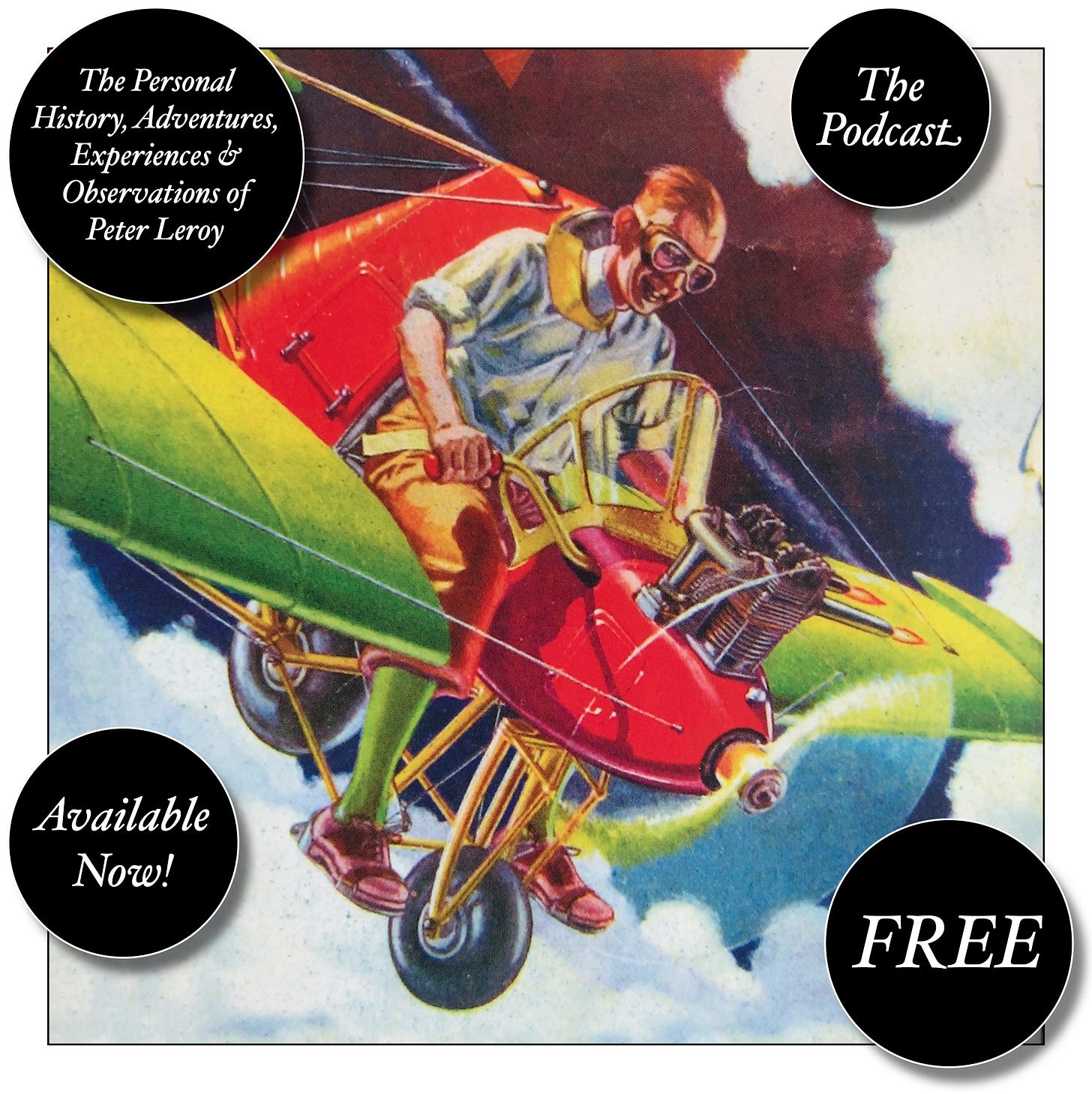



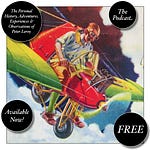
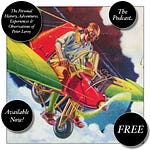
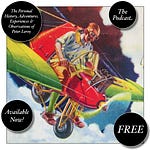
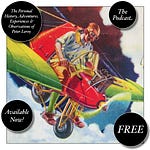

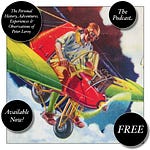
Share this post